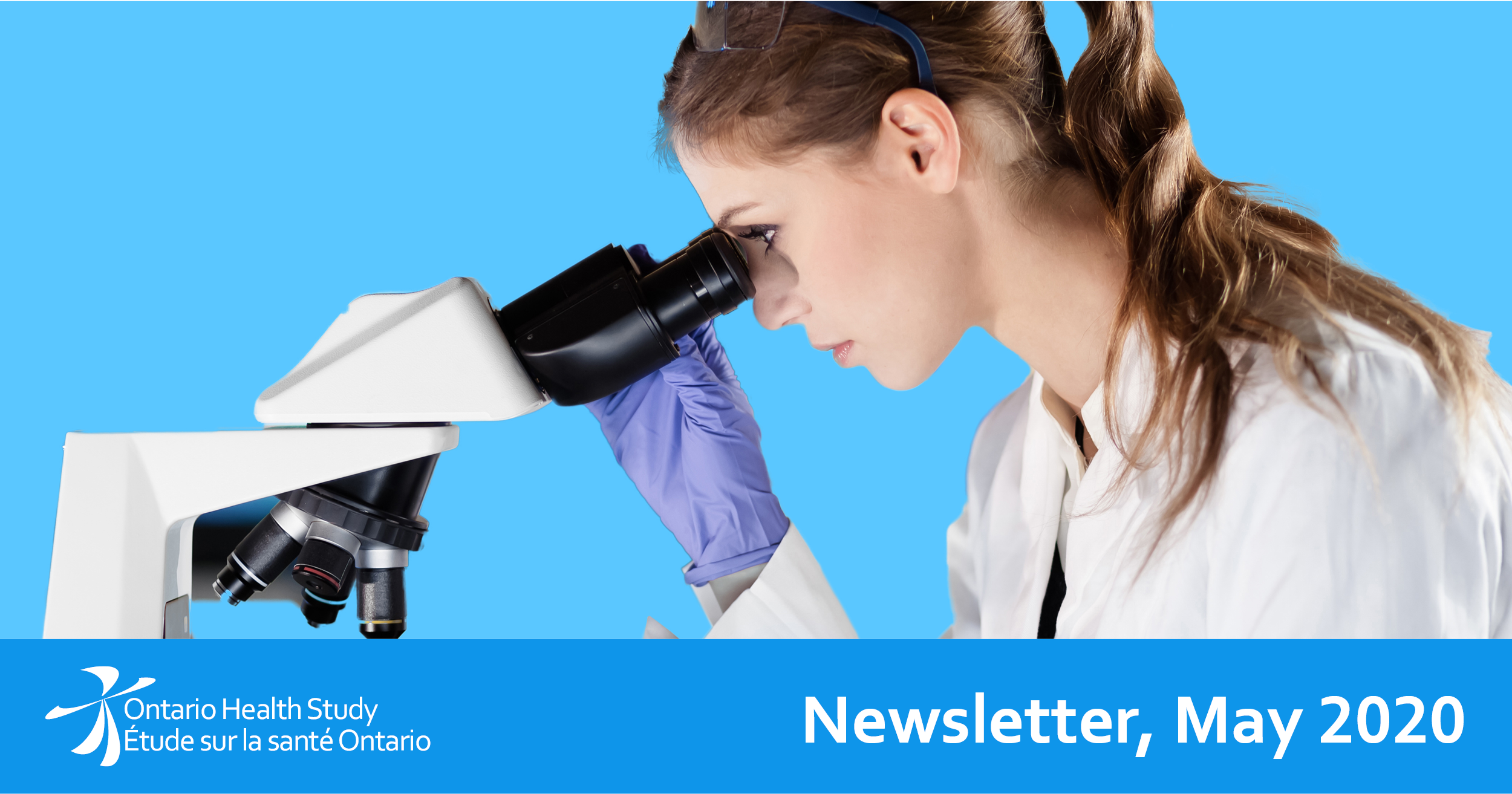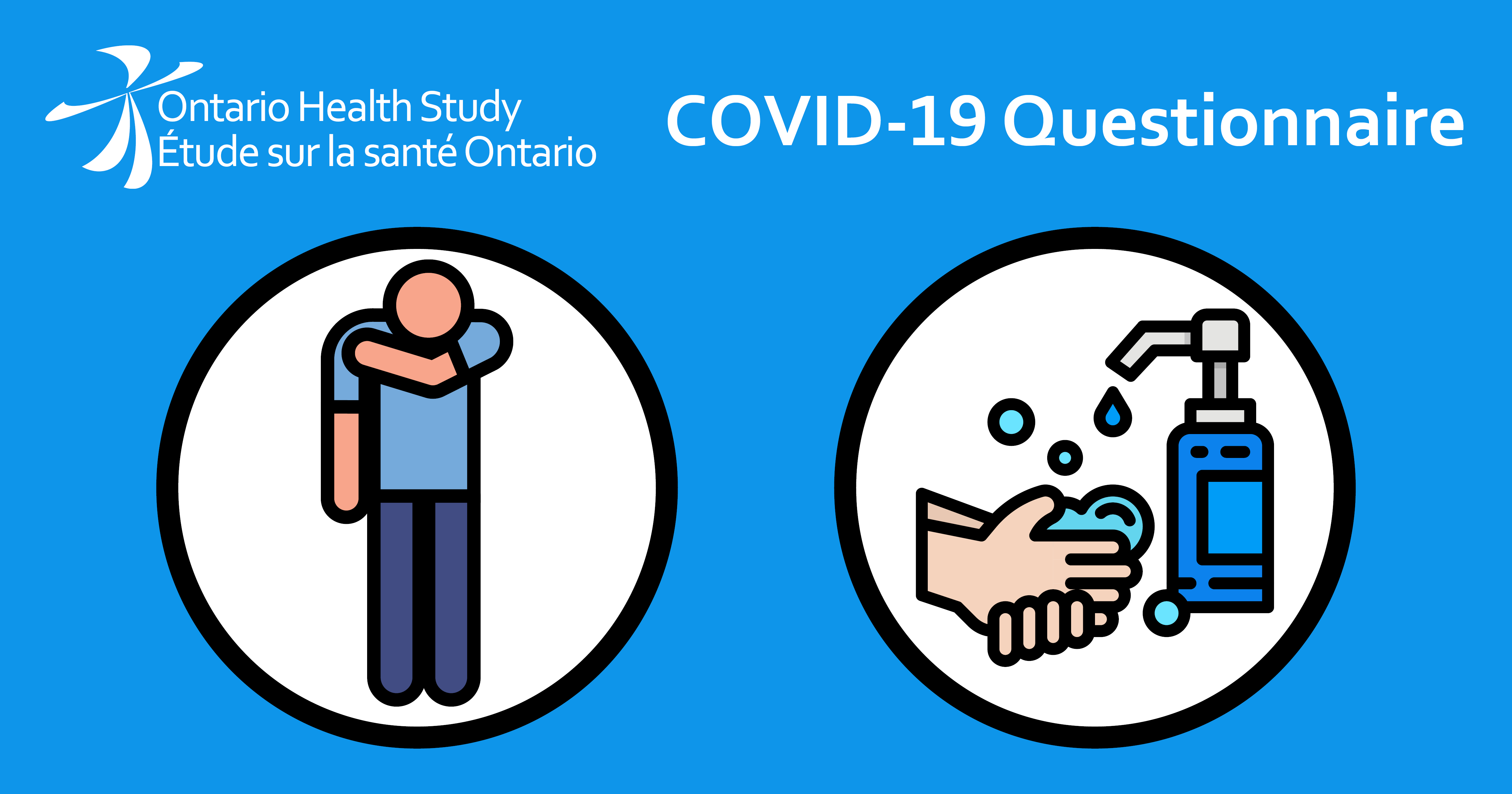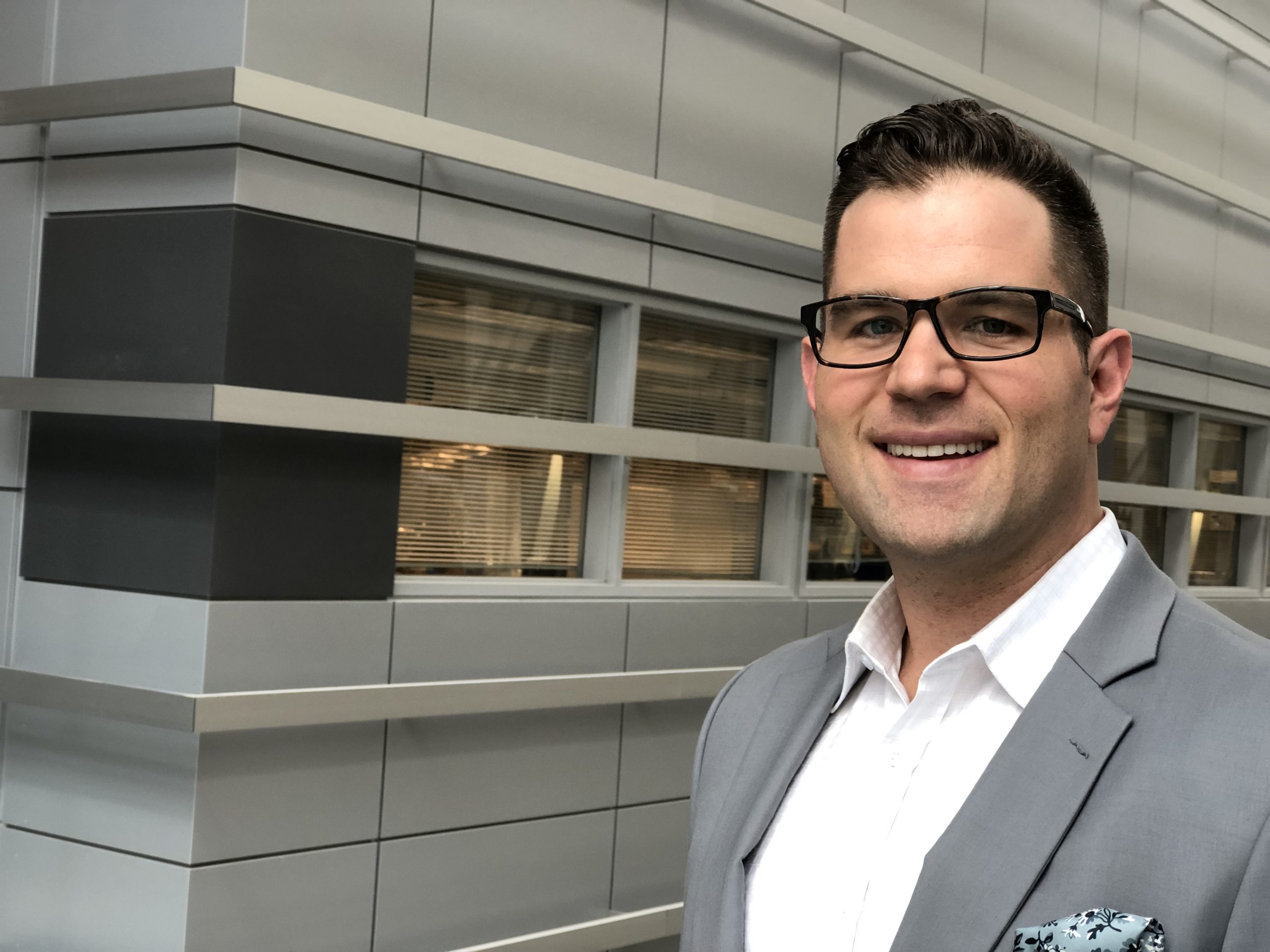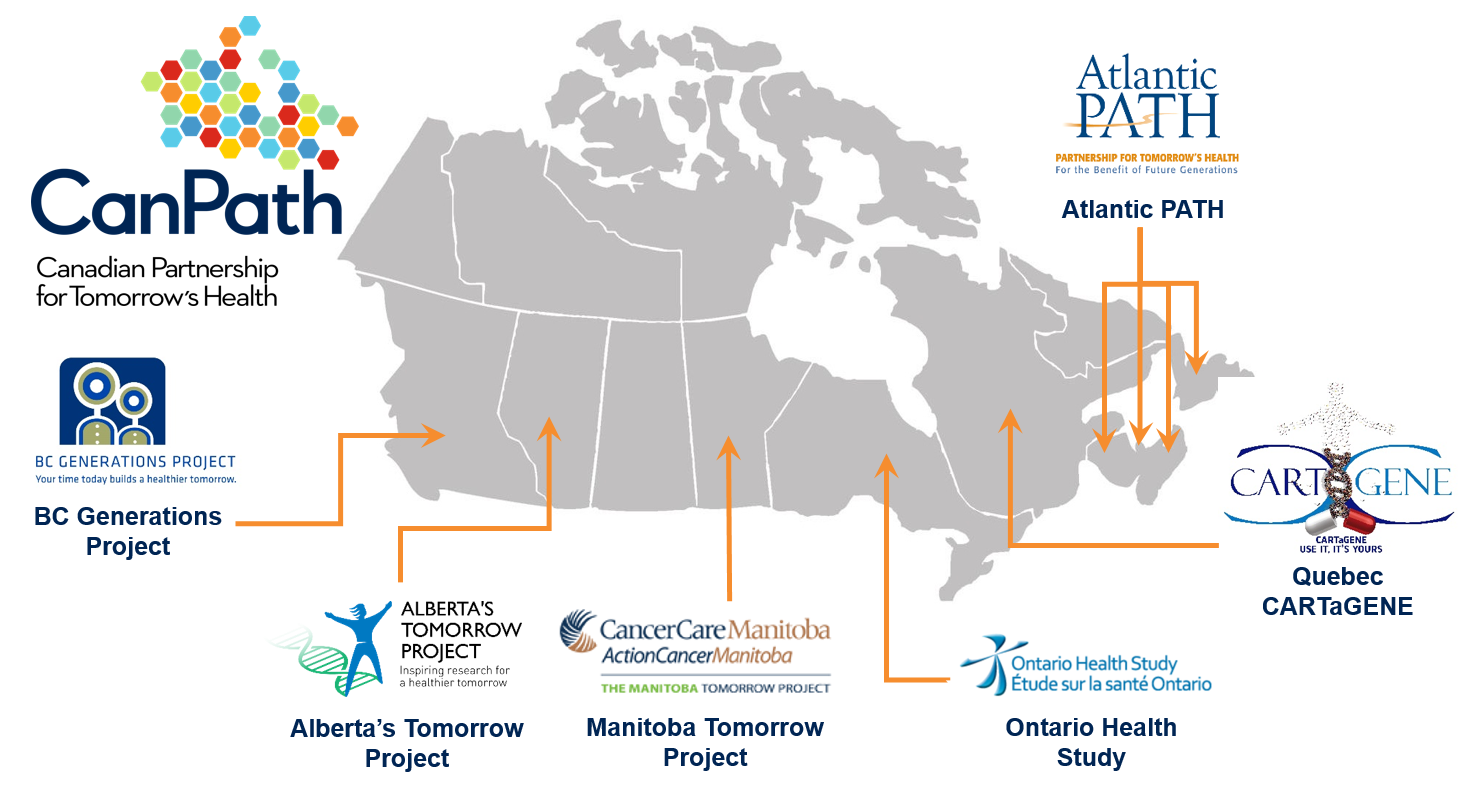The Ontario Health Study Newsletter, May 2020
May 13, 2020 // OHS Newsletter

In this Issue:
-
Take the COVID-19 Questionnaire
-
What makes our blood age well?
-
What's behind a cancer diagnosis in women under 50?
-
Do you fib about your age?
-
Epidemiologist joins the OHS Team
-
OHS is part of CanPath, a national health research platform
-
Why did you participate in the OHS?
Take the COVID-19 Questionnaire

We have just launched a new questionnaire to capture participants’ first-hand experience with the COVID-19 pandemic.
Please take the questionnaire now to share how the virus may have affected your physical and mental health, your financial and job status, and what kind of support networks you have in place to help you through.
You have been staying home to help flatten the curve, but completing this questionnaire is another direct and tangible way you as an OHS participant can directly contribute to global scientific efforts to understand and lessen the damage of this virus.
Your questionnaire data will contribute to a Canada-wide initiative. The OHS COVID-19 questionnaire contains the same questions being asked by all six of the regional studies that make up the Canadian Partnership for Tomorrow’s Health (CanPath). We are also partnering internationally, as CanPath is a founding member of the COVID-19 Host Genetic Initiative.
What’s in the OHS COVID-19 Questionnaire?
We want to know about:
- Whether you were tested for COVID-19 or suspected you had an undiagnosed case of COVID-19
- Your current health status and risk factors for COVID-19
- The impact the pandemic has had on your mental, emotional, social and financial wellbeing, what kind of support network you have around you, and how your job status may have been affected
- Which symptoms you may have experienced
- If you were hospitalized or received medical care
- The potential source of your exposure (recent international travel; household, community or healthcare contact with a known case; or unknown)
Be part of a nation-wide research effort: log into your OHS account and take the questionnaire.
But I didn’t get COVID-19!
We’re glad to hear that! Many of you will never get the virus, but it’s still important that you complete the COVID-19 questionnaire. Researchers will be able to look at the pool of OHS and CanPath participants for regional differences, identify whether participants had their pre-planned medical treatments postponed or cancelled due to the crisis, and how coping with the pandemic affected your emotional and financial wellbeing. If you later go on to experience symptoms, you can retake the COVID-19 questionnaire.
6 Ways your COVID-19 questionnaire data will be useful
The COVID-19 questionnaire data you provide will help researchers:
- Identify individual-level risk factors (genetic, environmental, or past health conditions) for the virus. This will help public health officials be more targeted with ongoing prevention and treatment strategies.
- Compile a resource with which to look for patterns of incidence, severity and treatment outcomes. Your data will help the health care sector be better prepared for any future COVID-19 outbreaks.
- Develop a triage tool that could be used to identify early those families and communities that are most vulnerable to getting seriously ill, based on their underlying health conditions and risk factors.
- Characterize the long-term health outcomes that arise from being infected with COVID-19, based on the different types of treatments people received, their viral load, pre-existing health conditions and their genetic ancestry.
- Estimate the true of burden of infection in the population, varying by geography and time. This could be used by local governments to guide their strategies about infection containment and mitigation, resource allocation and when to ease up on isolation measures.
- Rapidly collect and make available de-identified data for use by other national and global COVID-19 research initiatives.
What makes our blood age well? This OHS Researcher wants to find out.
Our blood gets older, just like every other part of our body. But why is it that some people’s blood seem to age better than others? Questionnaire data and blood samples from some OHS participants are being used to look for answers as to what characterizes ‘healthy blood.’ Toronto PhD candidate Elyssa Bader created this video to walk us through her research.
What’s behind a cancer diagnosis in women under 50? Researcher looks to OHS data for clues

Relatively little is known about the specific risk factors that lead women under 50 to develop and be diagnosed with breast cancer. One Canadian researcher and his team are looking to change that.
Dr. Darren Brenner, a University of Calgary epidemiologist, is using data from the OHS and other CanPath participants to explore which risk factors could be associated with breast cancer in younger women, looking into the role played by lifestyle, environmental, and reproductive factors, family and medical history, as well as breast cancer screening protocols.
Only an estimated 5-10% of early-onset cases can be attributed to inherited genetic mutations, and Dr. Brenner’s team is hopeful that their research can fill knowledge gaps and ultimately improve prevention strategies.
For more information about Dr. Brenner’s research, read the OHS News Update.
How your data and samples are being used
Dr. Brenner’s project is just one of many ongoing research questions that have been approved to access the OHS platform in search of answers. Read more about the many projects currently using data and samples from Study participants.
Do you fib about your age?
This may be good for getting the senior’s discount early, but this is not good for a health study. We don’t judge, we just want to ensure we have the most accurate data available for our researchers.
While we never give your full date of birth to researchers, it is used to calculate your current age and to link to other health data such as lab results, the cancer registry, and hospitalization records.
You may want to check your account to make sure we have your correct date of birth listed – please log in to your account here to check if you may have misstated your age on the “Personal Information” page of the “My Profile” tab. If it is not correct, call or email us and we’ll be happy to update it for you.
While you’re there, why not double check your contact info? Any changes you make to your email, mailing address and phone number can be saved right away, and helps us stay in touch with you over the course of this long-term study. Your assistance with this, and your continued participation in the OHS, are greatly appreciated.
Log in to update your account.
Epidemiologist joins the OHS Team

This pandemic has made epidemiology, the study of who gets sick and why, seem like the new ‘it’ career. At the OHS, we’re fortunate to have an epidemiologist of our own.
Dr. Victoria Kirsh joined the OHS team as our Scientific Associate in January, 2020. A former Assistant Professor at the Dalla Lana School of Public Health at the University of Toronto, and Scientist at Cancer Care Ontario, she is currently writing a profile paper about the OHS, and she helped lay the groundwork to launch our new COVID-19 questionnaire.
Victoria received her PhD at Yale University, and was a major contributor to the first scientific protocol used to create the OHS ten years ago. You may also recognize her from our “Participants make research possible” video. Welcome Victoria!
OHS is part of CanPath, a national health research platform
Big news on a national level - as of March 2020, CPTP is now CanPath: the Canadian Partnership for Tomorrow’s Health. Based out of the University of Toronto’s Dalla Lana School of Public Health, CanPath is the national coordinating body that directs the scientific research efforts of six regional cohorts, representing nine Canadian provinces:

- BC Generations
- Alberta’s Tomorrow Project
- Manitoba Tomorrow Project
- Ontario Health Study
- CARTaGENE (Québec)
- Atlantic PATH (New Brunswick, Newfoundland and Labrador, Nova Scotia, Prince Edward Island)
Data collected by these sister studies are harmonized both nationally and internationally so that the data is comparable and, when combined, makes CanPath the largest population health research platform of its kind ever created in Canada.
What does this mean for participants?
Every OHS participant who was between the ages of 30-74 when they registered for the OHS was part of CPTP and is now part of CanPath – that’s over 183,000 participants or roughly the population of Burlington, Ontario!
Since most cohorts have completed recruitment of new participants, CanPath and the OHS can now focus on both deepening the available data through additional questionnaires, and promoting this unique and comprehensive data platform to researchers in Canada and beyond.
To learn more about CanPath, visit their website at CanPath.ca
Why did you participate in the OHS?
|
Here’s what Kat from North York had to say:
“I am proud to participate in a scientific research program that ultimately may one day help humanity. If my time and samples help even one person combat or beat a disease then my life will have had meaning and I will have left a legacy (though an anonymous one) behind. I did not have children so this is my small way of leaving something of myself behind that may survive me and one day save lives. I am grateful to those who are much more brilliant than I and who take up the mantle and use these samples to do good works.”
We love hearing from you. As an OHS participant, why will you take the COVID-19 questionnaire? Email us at info@ontariohealthstudy.ca |
 |

